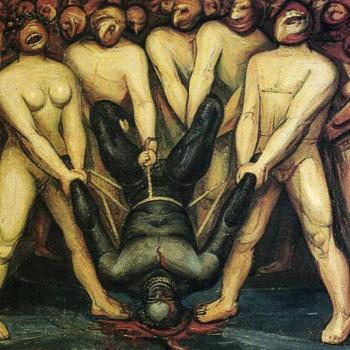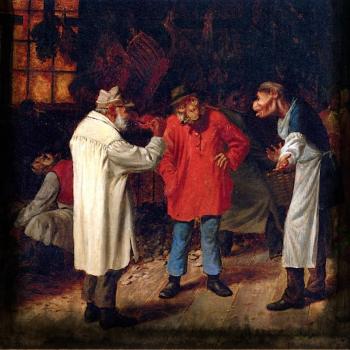The NY Times knows what’s up. You don’t have to love or agree with the premise of the Times 1619 Project – that we can only understand American history by placing slavery and racism at the center of that history. You don’t have to think the essays represent transformative historiography. What matters is that with this project the terms of a real conversation about American history can now take place.
History is inherently a conservative academic discipline (methodologically and, to some degree, politically). That’s fine. But the study of history can’t not benefit from offering a multitude of lenses on the human experience. Celebrate a diversity of perspectives and research agendas. Celebrate the heterodox. Take joy in a diversity of opinions, even (especially!) if you don’t agree with them.
Freedom and unfreedom.
I’ve written for years that “freedom for some requires unfreedom for others.” This is really the premise of this 1619 project. Race and slavery are the hinges that historically have opened doors for whites and closed them for blacks. This is simply not a controversial statement, as premises go. And once you start to run with it, lots of interesting possiblities for exploring history begin to surface! So much of the hub-bub is obviously not about the premise itself, but about the people making this statement – black authors not part of the wizened history establishment.
Founding dates.
Many of the 1619 Project critics are outraged that the authors would preempt 1776 and 1787 as founding dates. The more conservative critics – those who live and die by totemic texts such as the Declaration and the Constitution – are bleeding from their eyes about the lack of any appropriate textual foundation for 1619. Which is both reasonable and dumb at the same time.
Intellectual and social history are two very different approaches to excavating the past. And many intellectual historians – Perry Miller for example – have placed Puritanism and the European settlement/colonization of New England at the center of the foundation experience. Native and indigenous populations have made the claim our history starts well before the arrival of Europeans to the Americas. Our history is archeological – it never truly begins or ends. And this is not sacred ground. To assume we possess a single, sacred history is silly and not interesting. Let’s excavate and explore every layer, using every tool at our disposal.
The who matters more than the what.
It really does bear mentioning – again and again – that the tribal reactivity of our age has far more to do with who does the talking than with what they are saying. White conservatives have their panties in a bunch because black authors and the NY Times have sponsored this project. If other white conservatives (or even white liberals) had made similar historical arguments in The National Review (someone like Kevin Williamson, perhaps), no one would have flipped out.
By the same token, blacks and progressives might reasonably talk or write about the value of discipline in schools, the challenges of single-parent families, or black-on-black violence without fear of being tarred with the brush of racism. The in-group/out-group thing gets pretty old. What’s the point of having a conversation if you’re not disagreeing about anything?












